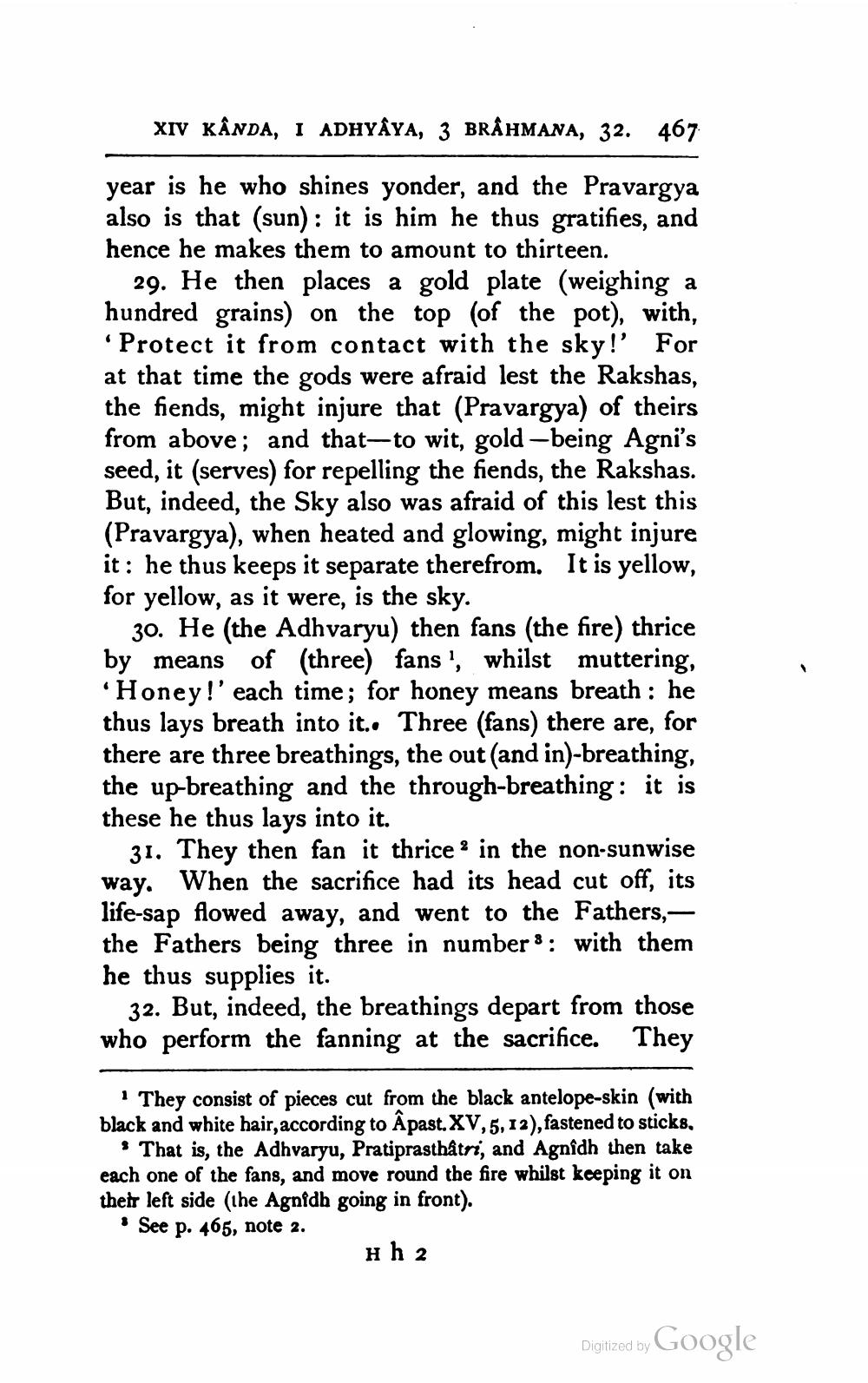________________
XIV KÂNDA, I ADHYÂYA, 3 BRÂHMANA, 32. 467
year is he who shines yonder, and the Pravargya also is that (sun): it is him he thus gratifies, and hence he makes them to amount to thirteen.
29. He then places a gold plate (weighing a hundred grains) on the top (of the pot), with,
Protect it from contact with the sky!' For at that time the gods were afraid lest the Rakshas, the fiends, might injure that (Pravargya) of theirs from above; and that-to wit, gold -being Agni's seed, it (serves) for repelling the fiends, the Rakshas. But, indeed, the Sky also was afraid of this lest this (Pravargya), when heated and glowing, might injure it: he thus keeps it separate therefrom. It is yellow, for yellow, as it were, is the sky.
30. He (the Adhvaryu) then fans (the fire) thrice by means of (three) fans', whilst muttering, Honey!' each time; for honey means breath : he thus lays breath into it.. Three (fans) there are, for there are three breathings, the out (and in)-breathing, the up-breathing and the through-breathing: it is these he thus lays into it.
31. They then fan it thrice in the non-sunwise way. When the sacrifice had its head cut off, its life-sap flowed away, and went to the Fathers,the Fathers being three in number 8 : with them he thus supplies it.
32. But, indeed, the breathings depart from those who perform the fanning at the sacrifice. They
They consist of pieces cut from the black antelope-skin (with black and white hair, according to Âpast. XV,5,12), fastened to sticks,
* That is, the Adhvaryu, Pratiprasthåtri, and Agnidh then take each one of the fans, and move round the fire whilst keeping it on thetr left side (the Agnidh going in front). . See p. 465, note 2.
Hh2
Digitized by Google




